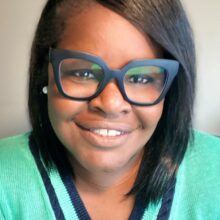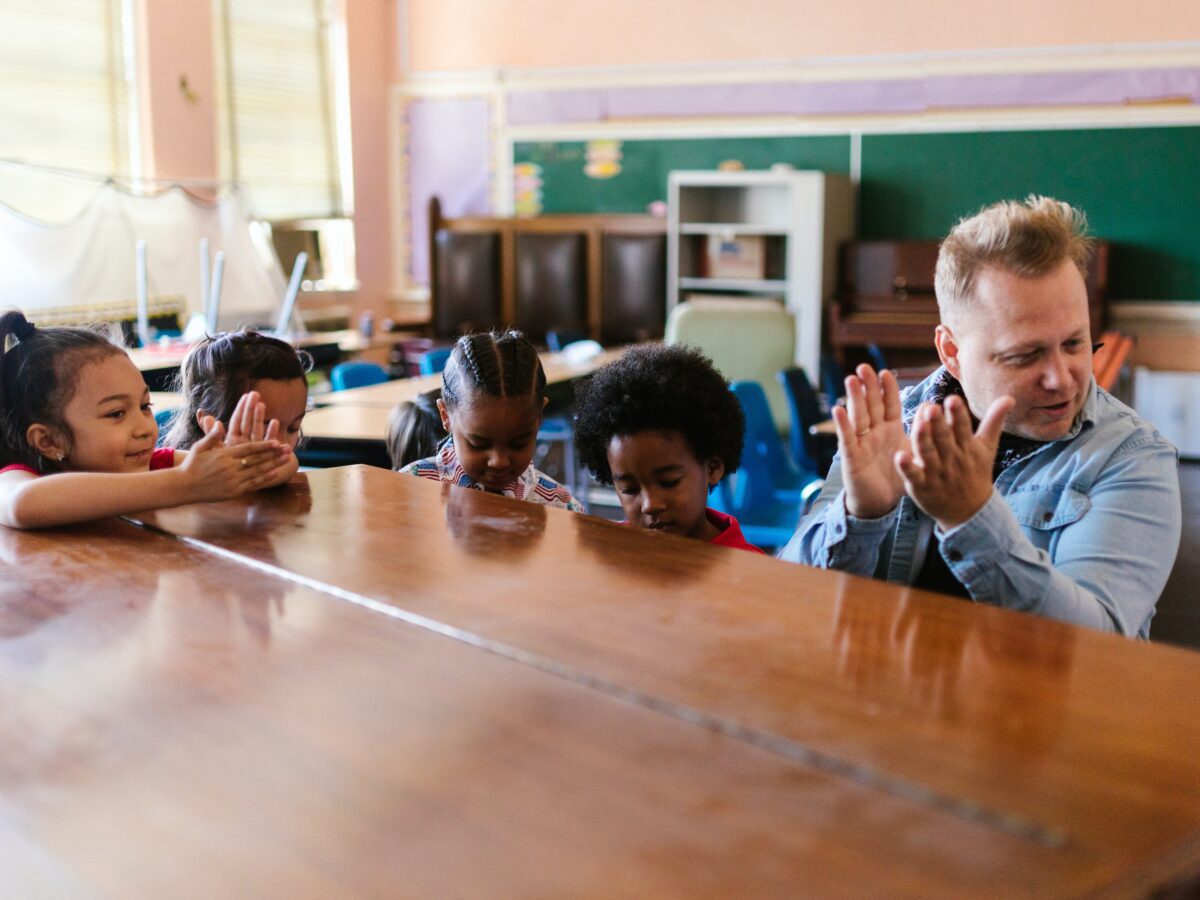
The following is part of my monthly column, One Day and One Goal: Expanding opportunity in N.C. I invite you to follow along as I share stories from classrooms and explore critical issues facing education in our state. Go here for past columns.
During the 2022-2023 academic year, one of our strategic action areas for Teach For America North Carolina was to equip our network with tools and experiences they could use toward catalyzing impact. This included new avenues of professional development, like the launch of our Center for Creative Leadership partnership, as well as an inaugural cohort of Storytelling Fellows.
We opened this Storytelling Fellowship to tenured teachers with an interest and capacity for communications, with the goal of bringing in their voices and perspectives to the critical work of sharing — and broadening — the efforts of the TFA network. We were thrilled with the result: a group of excited educators who lent us their skills while further developing their strengths.
TFA North Carolina staff member Jaelyn Felder played a significant role in facilitating this fellowship and is the first to sing the fellows’ praises.
“They brought a lot of innovative ideas to the table and provided valuable, diverse perspectives,” Jaelyn says. “The work that we are accomplishing in and out of the classroom across the state of North Carolina is incredible, and we needed to create more opportunities and spaces for our network to be a part of the process of amplifying their own stories.”
In thanks for all of the hard work of Jaelyn and the fellows — and in the spirit of the fellowship’s mission — it’s certainly appropriate that I hand over the mic.
Storytelling Fellow: Rachel Candaso
Rachel Candaso joined Teach For America’s Pitt County cohort in 2020 based on a desire to make a “tangible impact,” and joined this year’s Storytelling Fellowship wanting to share her story with others.
“Educators are public figures,” says Emma. “Whether we are public figures just among the school community, throughout the district, or globally, teachers assume a role of prominence among students’ lives and encourage them to live into their fullest potential. With the growth of virtual platforms, teachers’ spheres of influence have grown from their classroom to spaces such as LinkedIn, Teacher TikTok, and Teacher Twitter. To better grow my capacity as an educator, I joined this fellowship to explore educational social media trends and to enhance my engagement outreach.”
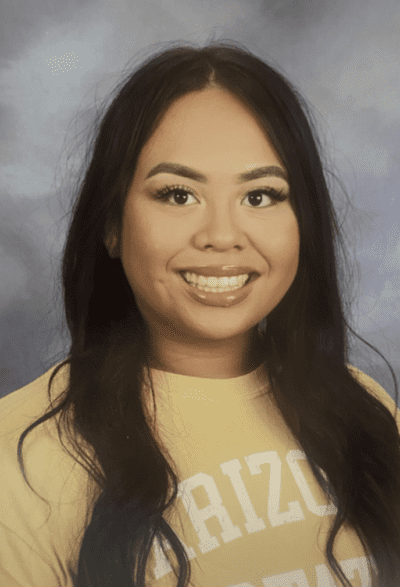
“In this fellowship, I have learned to utilize LinkedIn as a platform to make connections with other TFA educators across the country to stay updated on current educational trends and pedagogical approaches. Now, I am growing my online presence by utilizing my school’s Facebook page and district page to share information about what is happening in my program. As the AVID Site Coordinator for my school, I have leveraged social media to spread information about the program and the accomplishments of my students. While I am not fully vested in becoming a teacher social media star, I have benefited greatly from using social media as a tool to engage with my community, families, and colleagues.
“The Storytelling Fellowship was a great opportunity for me to learn more about the marketing and messaging aspect of education. Public support directly influences the impact I have been able to make on my students. Growing the social media impact of the AVID program at my school [in Greenville] has led to an exponential increase of community attendance at our events and guests such as our county commissioners and school board members visiting my classroom to see our work.”
Storytelling Fellow: Aprille Morris-Butler
“Imagine being a mom to one of the best kids the world has ever known: smart, kind, intelligent and hilarious. Unfortunately, when that same kid starts school, the story changes. Suddenly he’s sullen, mean and frustrated often. All of his attempts to advocate for himself are rebuffed by his teachers and he’s struggling to make school work for him. Eventually, he’s diagnosed with ADHD and now he can begin to receive the support he needs. It’s a relief, but the frustration of those first few months never leaves.”
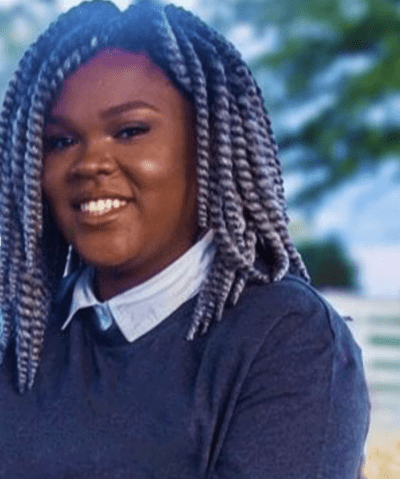
For Aprille Morris-Butler, this is a part of her and her son’s story. And it’s why she joined Teach for America in 2019.
“I was so frustrated by my own experience with education, struggling to advocate for my son, that I began to wonder how many other parents and students around the country were in the same position I was in: trying to succeed in a system not built for them. Asking for what they felt they needed and not being listened to when they did. I was determined to change that system, even if only on a classroom level. I knew that there were plenty of students just like my son who needed someone who was both willing and capable to listen and make changes that they might need to succeed. I knew that not only did I want to be that person, I could be that person.”
“That’s the same reason I joined the Storytelling Fellowship. Everything I work towards is about finding ways to amplify the voices of the most marginalized among us. I wanted to make sure that I had the tools to make this possible, and the fellowship has been so helpful with that goal. Effective change can only happen if the voices of those most impacted can be heard and I am always going to find ways to make them as loud as possible.”
Aprille currently works as a STEM teacher at Mountain Island Charter School in Mount Holly, North Carolina.
Storytelling Fellow: Emma Goldsmith
Emma Goldsmith is an alumna of our 2020 TFA cohort in Charlotte, where she still works as an elementary teacher. She says she applied for the Storytelling Fellowship for a number of reasons, “but I think it all circles back to this one thing: I think educators have one of the most, if not the most, imperative jobs in the world.”
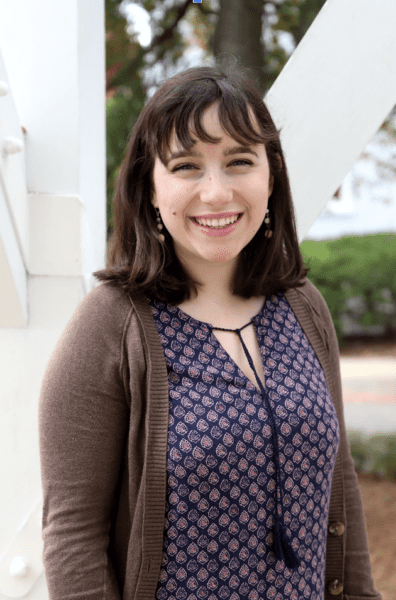
“Teachers help shape the future. We care and look after today’s youth. We teach them how to be both scholars and humans. And we ensure that they receive a powerful education so that they can then use that education to lift themselves up in the future. But, to be quite frank, at times, it feels as if the only people who truly understand the importance of teachers are teachers themselves. That has to change. And I think the most effective way to do that is to tell teachers’ stories — to amplify the voices of educators so that other people can have at least a glimpse into what it takes to command a rigorous and engaging classroom.”
“For the past three years, I have taught all subjects to anywhere from 16-26 kindergarten students in a Title I school. At the beginning of the school year, my kindergartners do not even know that letters make sounds, let alone words, but by the end of the year, I teach them how to read whole books by themselves. Seeing this process unfold — and being the catalyst behind it — has been the closest thing I’ve seen to magic.
“But it’s almost never easy. Our days start before the sun itself wakes up and, more often than not, it feels as if our days never really end. But it’s difficult to know how that really feels unless you’re also a teacher. It can even be difficult to find stories that illustrate the teaching experience authentically. That’s why fellowships such as this one are a meaningful step in empowering teachers — and thereby students — everywhere.”
The story continues
This year’s fellowship may have concluded, but it’s evident that these fellows’ stories are far from over. Not only will they continue to serve as educators and leaders in their placement communities, but they have become network-level influencers who will amplify the voices and needs of students with the skills they have sharpened during their time in this cohort.
Their work has also provided another proof point of the impact of TFA corps members in and beyond the classroom. Jaelyn put it well when she said: “The Storytelling Fellowship is a great opportunity to see how the foundations that are taught in the corps can be used in other arenas. As a TFA alumna, I use those principles in my daily life and in my role I have to be equity focused at all times. This fellowship is just another opportunity to continue to empower our network to use their voice in this work.”
We are grateful to Aprille, Emma, and Rachel for their contribution to the work at hand and know they will inspire future fellows to join the ongoing story being written about education in North Carolina.
Recommended reading



